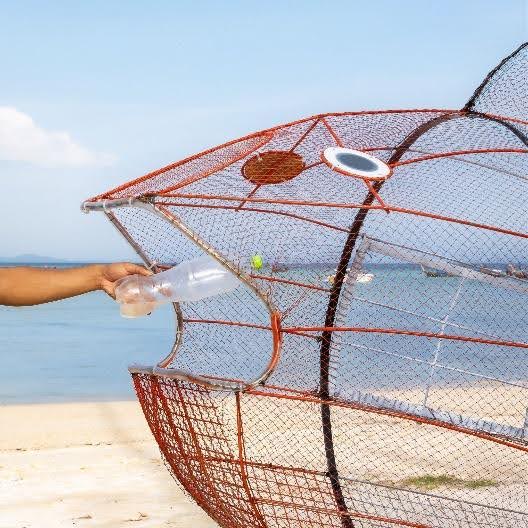Systematic waste and waste management in hotels is a vital component of sustainable business operations. It not only helps reduce environmental impact but also enhances brand image, lowers operational costs, and adds value through the efficient use of leftover resources contributing to sustainable waste management in Thailand.
Targets
- Reduce food waste by 10% by 2025
- Reduce food waste across all hotels by 50% by 2030
Performance

Business Opportunities and Risks
Sustainable waste management presents several key opportunities. It helps preserve the environment and the scenic beauty around hotels, such as beaches and marine areas, ensuring they remain attractive in the long term, thereby maintaining their appeal to tourists.

Additionally, it offers opportunities to develop comprehensive waste management systems through knowledge exchange and collaboration with global partners and networks. This enables more efficient resource use, reduces operational costs, and promotes recycling or waste upcycling in partnership with business allies to create added value.
However, ineffective waste management can cause negative impacts, such as degrading the attractiveness of tourist destinations, which may reduce their ability to attract visitors. This poses risks of contamination to natural resources like soil, water, and air, affecting humans and surrounding ecosystems. Furthermore, improper resource use and food loss can increase operational costs and potentially result in legal risks if waste management standards are not properly followed.
Waste Management Approach
SHR prioritizes efficient waste and waste management by focusing on waste reduction and reuse to minimize environmental impact following the 4R principles (Reduce, Reuse, Recycle, Rethink). This includes reducing single-use plastics, encouraging reuse, and selecting recyclable materials. Additionally, SHR emphasizes systematic waste segregation, reducing unnecessary packaging, and enabling external waste buyers to collect waste for recycling.
Waste Journey
The Company has designed a waste journey to avoid landfill disposal by recycling or upcycling unavoidable waste. Examples include converting food scraps into organic fertilizer, sending waste for energy recovery through incineration, and collaborating with partners like PARLEY for plastic recycling at the CROSSROADS Maldives project.
Zero Single-Use Plastics
The Company has eliminated single-use plastics such as plastic water bottles and plastic wraps for in-room amenities, supporting the use of environmentally friendly materials across all self-managed hotels.
Food Waste Management with Effective Microorganisms (EM)
The Company’s hotels sustainably manage food waste by processing inedible food scraps and fruit peels into Effective Microorganisms (EM) bio-fermentation liquid for use within the hotels and surrounding communities.

The produced EM liquid is used in activities such as cleaning, wastewater treatment, and soil nourishment in hotel green areas. Hotels also distribute EM liquid to local communities and share knowledge about its production and applications to promote efficient and eco-friendly resource management.
Upcycle – Adding Value to Waste Materials
The hotels under the group promote the value-conscious use of resources through the concept of Upcycling, by repurposing waste materials into more useful forms. For example, old curtains from room renovations are transformed into laundry bags for guests, reducing waste and extending the material’s lifespan.
Additionally, SAii Laguna Phuket collaborates with the Seed of Change Foundation to upcycle old curtains into fabric bags used as beach bags. This initiative not only reduces waste but also supports the community environmentally, socially, and economically.
These Upcycle approaches strengthen sustainable resource management systems and promote the circular economy.
| Output | Outcome |
| • Approximately 800 bags produced • 120 pieces of textile materials upcycled • 5 artisans employed • Income of Seed of Change from the fabric bags accounts for 61% of the total revenue from SAii Laguna Phuket (all products) | • At least 114 pieces of textile waste were diverted from disposal • Supports the Circular Economy approach • Reduced carbon emissions by 3.56 tCO2eq • 5 artisans earn additional income through commissions • Supports Seed of Change in capacity expansion • Bags made from expired materials transformed into useful items/souvenirs • Customers show interest and purchase them as souvenirs • Customers perceive the bags as memorable keepsakes from their stay |
Learn more in the Sustainability Report under the section Waste Management

